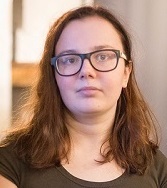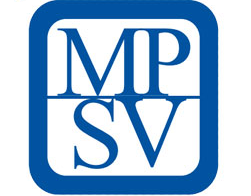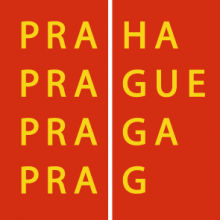Two years ago, I participated, as a guest, in the Přicházíme v míru talk show (a talk show featuring guests on the autistic spectrum, translator’s note) at the Kampa Theatre in Prague. When it came to the questions from the audience, someone asked – which can be heard on the record – as to why there would be so many discussions about autism in April, the month of autism, but not a single autistic person would take part.
That was the question worth a million. In a country where people on the Internet laugh that there is a conference on women’s rights in Saudi Arabia without a single woman as well as at a discussion on obstetrics in the Czech Republic where only people who have never given birth and they never will speak on the issue, perhaps the general public might understand that talking about autistic people without autism is somewhat… strange.
So when I received an offer to attend a webinar on the people with autism study at university, organized by the ATYP Endowment Fund together with the Pyramid Centre at the University of Ostrava, I nodded. I was glad that various organizations, whether state, commercial or non-profit, are aware of the importance of discussion with the people primarily affected by the issue.
I appreciate that many different people met at the webinar. Some of us had already graduated (like me), others were still sitting at (virtual) desks, some studied in the Czech Republic, others abroad, some did a theoretical, others did a practical field, some had experience with the humanities, some with sciences… I wouldn’t dare say that we were a representative sample of autistic students or graduates, but we hopefully represented some diversity sufficiently.
Although I think I remember my student years more than well, I didn’t resist the phrase “I don’t know” at times. When I found myself at university in the UK and struggling with essays, was it the result of autism or that I came from Central Europe? Hard to say. As intersectional theory (the theory of how human identities intersect) states, in the case of multiple discrimination, it is difficult to distinguish which individual discrimination is responsible for it. Sexism? Ableism? Ethnicism? Something else? All of them? I don’t know.
What I know for sure is that I graduated successfully. However, life does not end at school, which is why we touched upon the issue of career counselling. I stated that I consider it essential that, when speaking of careers, we look at employment and business or independent activities in general. Not everyone is comfortable with working under someone and would instead manage things on their own.
I spoke from my own experience. After several years of employment, my current situation is that I have a small job in a magazine editorial office, and the rest of the time is devoted to my freelance activities. But I got to it basically by mistake; I worked part-time, tried to find another part-time job, it didn’t work, even with the help of an organization focussing on finding jobs for disabled people. Only when friends and friends’ friends began approaching me with requests to translate something, “because I had lived abroad,” I realized that I didn’t have to be an extroverted charismatic yuppie to get people interested in my services.
Of course, both at University College London and at Palacký University in Olomouc, there were business incubators and counselling for those interested in business in general. On the other hand, if you come to university assuming that you will not be an entrepreneur, you will not enter these places. It is necessary to start much earlier, whether at secondary, primary or nursery schools.
Some things come to light at university, sometimes later, if ever. For example, we learned from experts at the Pyramid Centre that more and more people on the autistic spectrum study at the University of Ostrava year after year. However, they only had an overview of those who sought their services. This means that there may be other students with a diagnosis of autism at the university, but no one knows anything about them, so they don’t even have the opportunity to find out how they are doing. What’s worse, quite possibly, autistic people who have no diagnosis and probably don’t even know about their autism also move there.
It turns out that universal design, such a design of spaces, services, and other things that would help everyone, would solve a lot of problems. Anyone who encounters barriers today and does not have a doctor or a psychologist’s affirmation will find them difficult to solve. On the other hand, if there were no barriers, no affirmation would be needed. Therefore, university staff should be prepared that every student may have a disability (every student may have a disability, even if it is not visible or diagnosed) and be helpful to those who do not attend any center. Two years ago, I was sitting on a theatre stage, this year, I was sitting virtually at a university. It’s just wishful thinking, but I’d be happy if I didn’t have to take a seat anywhere for the next two years.
______________
text Mgr. Ivana Recmanová
Mgr. Ivana Recmanová is a member of the A-community and from 2018 to 2020 she was a member of the Ombudsman's Advisory Body.
A-community-independent group of self-advocates on the autism spectrum in the organization Adventor o. S.
Adventor is a co-founder of the international organization EUCAP. In March 2021, they initiated a general UN debate on the rights of PWD to work and employment. EUCAP contributed to this discussion by summarizing in the document many key topics expressed by member organizations.
https://eucap.eu/news-and-current-projects/
You can watch the discussions at the UN here:
http://webtv.un.org/
We inform about EUCAP in the text People with autism from all over Europe founded the EUCAP association.
The work on this text is funded by the Autism Not Seen 2 project, which is supported by the European Solidarity Corps









